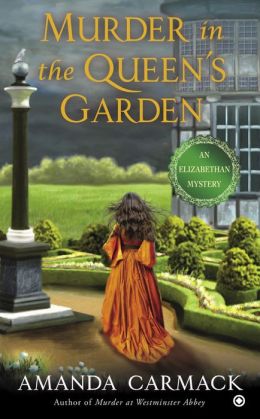 Seems like it never takes me long to return to reading mysteries. This week in addition to some heavy non-fiction I read, Amanda Carmark's Murder in the Queen's Garden came to the top of my current to-read pile. Stickler's can argue that the Nonesuch's gardens belonged to Lord Arundel since he bought the estate from the crown after Catherine Howard's misadventures. But Elizabeth I had stopped at the fabled palace on progress, and I won't quibble.
Seems like it never takes me long to return to reading mysteries. This week in addition to some heavy non-fiction I read, Amanda Carmark's Murder in the Queen's Garden came to the top of my current to-read pile. Stickler's can argue that the Nonesuch's gardens belonged to Lord Arundel since he bought the estate from the crown after Catherine Howard's misadventures. But Elizabeth I had stopped at the fabled palace on progress, and I won't quibble.As usual, Carmark shines in her descriptions. She gives the reader a tangible idea about life in Tudor England, with all its squalor, riches, and superstitions, though you must give the Tudors credit for not going hysterical over witches like the Stuarts did.
What I find amazing is how Carmark narrows in on the telling detail. Just one example: Kate, the MC, being thankful her room wasn't close to the "jakes", aka outhouses, in a clause. London smells got more attention. The pacing, character development, plot line all live up to the standards of the setting.
That leaves us with the crucial part of any mystery--the villain or perp. I thought her handling of that element lacking. I like the perp to be noticeably involved in the action. Being shoved from behind doesn't cut. The villain's dupe was a sniveling wretch, and the true perpetrator wasn't on scene enough to get a feel for the scheming going on in the shadows. Oh, there were encounters but no indications. Maybe a more astute readers would disagree.
Perhaps the best part of this series is the growth in the main character's personal and political savvy. Kate Haywood has always been observant, but now she's beginning to make sense of the tortuous schemes of Elizabeth I's court.
.jpg) I especially like the concise descriptive points that Carmark uses to advance her story and create the ambiance in which her character interact. Strongly recommended, both as an enjoyable read and a craft lesson.
I especially like the concise descriptive points that Carmark uses to advance her story and create the ambiance in which her character interact. Strongly recommended, both as an enjoyable read and a craft lesson.
~~#~~
Links to Interesting Stuff.
At least, it's interesting to me.
Are you dreaming of writing a blockbuster book? Hey, even if you're a reader, you might be interested in this blog that tells you how it's done: How to Write a Dystopian YA Novel in 10 Easy Steps by Kat Brown. I found this interesting not so much because I expect any of my shorts to be blockbusters, but I seem to be stuck on writing YA coming of age stuff at the moment.
Seems more people than me are thinking YA. The Passive Guy weighed in on why YA novels are used in so many blockbuster movies.
Then, there's our own dystopian society. Once the US was exceptional, but Robert D. Putnam has written a book, Our Kids: The American Dream in Crisis, showing how the American Dream is about to evaporate. This is a book not only for the American body politic but for writers who need to get more class differences in their writing to make it more realistic. Won't preach, but I'm grateful that a poorer US [in the 1940s & 1050s] managed to support a more helping social infrastructure that allowed the poor to become upper middle class. Anyone for $99 a semester state university tuition, maybe about $2000 a semester in today's money.
[Yeah, I was one of those kids who went to such a college, only we were so poor we qualified for a free tuition grant funded by the state. Thousands of poor kids got them at the time. But then, I could provide food & rent working for a buck an hour. Yeah, I'm thankful I grew up in the golden age of America.]
~~#~~
.jpg) Was feeling a little sorry for myself last week when I realized none of the stuff I've been writing the last month or so--trying to bend Cassy Mae's story into a sequel--wasn't cutting the mustard. My critique group wrinkled their noses at how the back story clogged the story rather than illuminated it. Then, I tried their suggestions. Result: a bigger mess.
Was feeling a little sorry for myself last week when I realized none of the stuff I've been writing the last month or so--trying to bend Cassy Mae's story into a sequel--wasn't cutting the mustard. My critique group wrinkled their noses at how the back story clogged the story rather than illuminated it. Then, I tried their suggestions. Result: a bigger mess.Of course, my musician daughter said, "So, what. Salvage what you can and continue writing." Her attitude: It's what happens when you create. Yeah, I think it was good advice for anyone.
Actually, I had already salvaged the plot line with a new main character and sent it to my critique group. If the first response to my new first chapter is any measure, I made the right move. It even starts off in a bus station, so I get to keep my cover. Pill's going to fit right into the 10,000+ words I've already written with very little revision. I like angry Pillar Beccon more than mild Cassy Mae. The book's still set in Andor, only being told from a developing witch's point of view.
Now, I must post the new story line on my author website. I'm also offering longer excerpts of all my fantasy stories there on my publication pages.
Do you think I'm strange that I like to have a potential cover of my book while I'm writing?

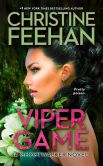
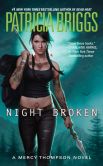
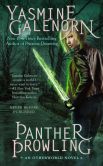
.jpg)
.jpg)
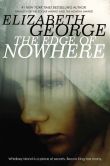
.jpg)
.jpg)
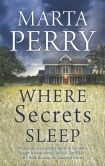
.jpg)
.jpg)

